30 March 2018
A Music Trip Through Time with the Sounds of the Ancient Hydraulis
The Acropolis Museum welcomes the summer season with a rare musical event, a recital featuring the sounds of the hydraulis and harp, scheduled for Friday, 30 March, 2018, at 7 pm, in the Parthenon Gallery. The event is organized in collaboration with the Association of Friends of the European Cultural Centre of Delphi.
The history of the hydraulis
The “hydraulis” water-organ was an ancient invention conceived in the sophisticated, intellectually fertile climate of ancient Alexandria. Ctesibius, one of the most renowned engineers of the time, created the first organ, an instrument operating on flowing air, pumped through a reservoir in which water stabilized its pressure. The sound came from a series of tubes of different heights. Later, additional rows of tubes were added, enriching the music’s polyphonic quality. The pleasant, powerful sound of the hydraulis made it very popular and soon the instrument was found in temples, theatres and hippodromes, as well as the Roman imperial court. Later, amidst chaotic barbarian raids, the hydraulis was set aside and forgotten in the West. It endured at the court of Byzantium, however, in a further advanced form not requiring water. There, it became an important state symbol, its enjoyment a privilege of the emperor.
The hydraulis of Dion
In August 1992, digging opposite the Villa of Dionysus at Dion, Prof. Dimitris Pantermalis and his team discovered a musical instrument, which the ancients called the "hydraulis" and in medieval times evolved into the Western church organ. The hydraulis of Dion dates to the 1st century BC and represents the oldest musical instrument of its kind to be preserved. The European Cultural Centre of Delphi has successfully reconstructed this extraordinary musical instrument by faithfully studying the archaeological find at Dion.
For this event, Prof. Dimitris Pandermalis will speak about the history of the hydraulis and the excavations at Dion. Guests then can enjoy a virtuoso recital of hydraulis music performed by the famous Greek organist Ourania Gassiou. The event will close with the melodious sounds of the harp, performed by the talented musician Thodoris Matoulas.
Useful information
As every Friday, the Museum’s exhibition halls will remain open until 10 pm and the restaurant until midnight (reservations, tel. 210 9000915).
For the event in the Parthenon Gallery, free-entry tickets will be available at the Museum's ticket counters from 6.30 pm. With free-entry tickets, guests will be able to explore the Parthenon Hall from 6.30 pm until the Museum’s closing at 10 pm.
Summer hours: From 1 April – 31 October, 2018, the Museum’s summer hours will be in effect: Monday 8 am – 4 pm, Tuesday to Sunday 8 am – 8 pm & Friday 8 am – 10 pm.




